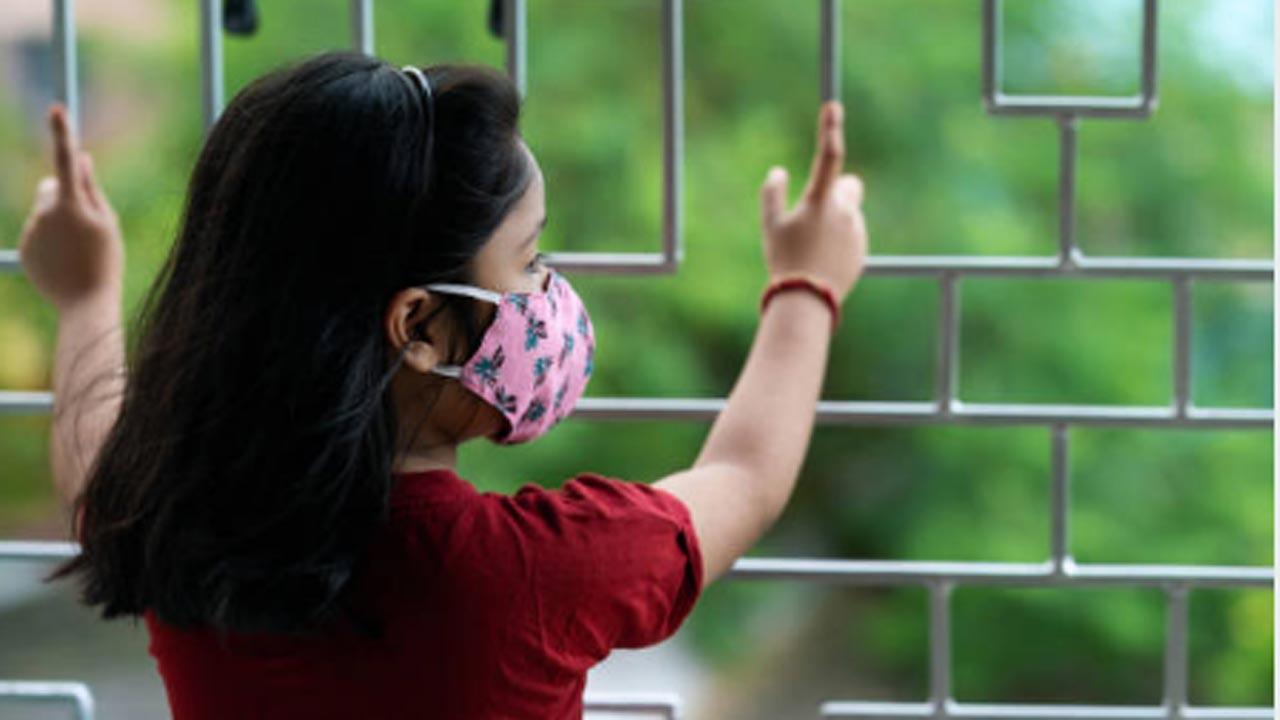
A large-scale observational study, published in The Lancet Psychiatry journal, of over 1.25 million patient health records has revealed that not only adults, but also children who suffered from Covid-19 are also at an increased risk of cognitive deficit, insomnia, ischaemic stroke, nerve/psychotic disorders and epilepsy or seizures even months after they were infected.
According to Lancet, the study, which looked at data of 185,748 children, found that post-Covid risk trajectories differed in children compared with adults.
In the six months after SARS-CoV-2 infection, children were not at an increased risk of mood or anxiety disorders.
However, they had “an increased risk of cognitive deficit, insomnia, intracranial haemorrhage, ischaemic stroke, nerve, nerve root, and plexus disorders, psychotic disorders, and epilepsy or seizures”.
Unlike adults, cognitive deficit in children had a finite risk horizon (75 days) and a finite time to equal incidence (491 days).
“Children have a more benign overall profile of psychiatric risk than do adults and older adults, but their sustained higher risk of some diagnoses is of concern,” said the study.
A sizeable proportion of older adults who received a neurological or psychiatric diagnosis, in either cohort, subsequently died, especially those diagnosed with dementia or epilepsy or seizures.
Just after the emergence of the delta variant, increased risks of ischaemic stroke, epilepsy or seizures, cognitive deficit, insomnia, and anxiety disorders were observed, compounded by an increased death rate.
“With Omicron, there was a lower death rate than just before emergence of the variant, but the risks of neurological and psychiatric outcomes remained similar,” revealed the study, led by researchers at the University of Oxford in the UK.
The observational study extracted data from the `TriNetX` electronic health records network, an international network of de-identified data from health care records of approximately 89 million patients collected from hospital, primary care, and specialist providers (mostly from the US, but also from Australia, the UK, Spain, Bulgaria, India, Malaysia, and Taiwan).
“This analysis of 2-year retrospective cohort studies of individuals diagnosed with Covid-19 showed that the increased incidence of mood and anxiety disorders was transient, with no overall excess of these diagnoses compared with other respiratory infections,” the researchers noted.
In contrast, the increased risk of psychotic disorder, cognitive deficit, dementia, and epilepsy or seizures persisted throughout.
“The fact that neurological and psychiatric outcomes were similar during the Delta and Omicron waves, indicate that the burden on the health-care system might continue even with variants that are less severe in other respects,” the researchers warned.
Also read: Thane records 324 new Covid-19 cases; active tally at 1,904
This story has been sourced from a third party syndicated feed, agencies. Mid-day accepts no responsibility or liability for its dependability, trustworthiness, reliability and data of the text. Mid-day management/mid-day.com reserves the sole right to alter, delete or remove (without notice) the content in its absolute discretion for any reason whatsoever
Stay connected with us on social media platform for instant update click here to join our Twitter, & Facebook
We are now on Telegram. Click here to join our channel (@TechiUpdate) and stay updated with the latest Technology headlines.
For all the latest Health & Fitness News Click Here
